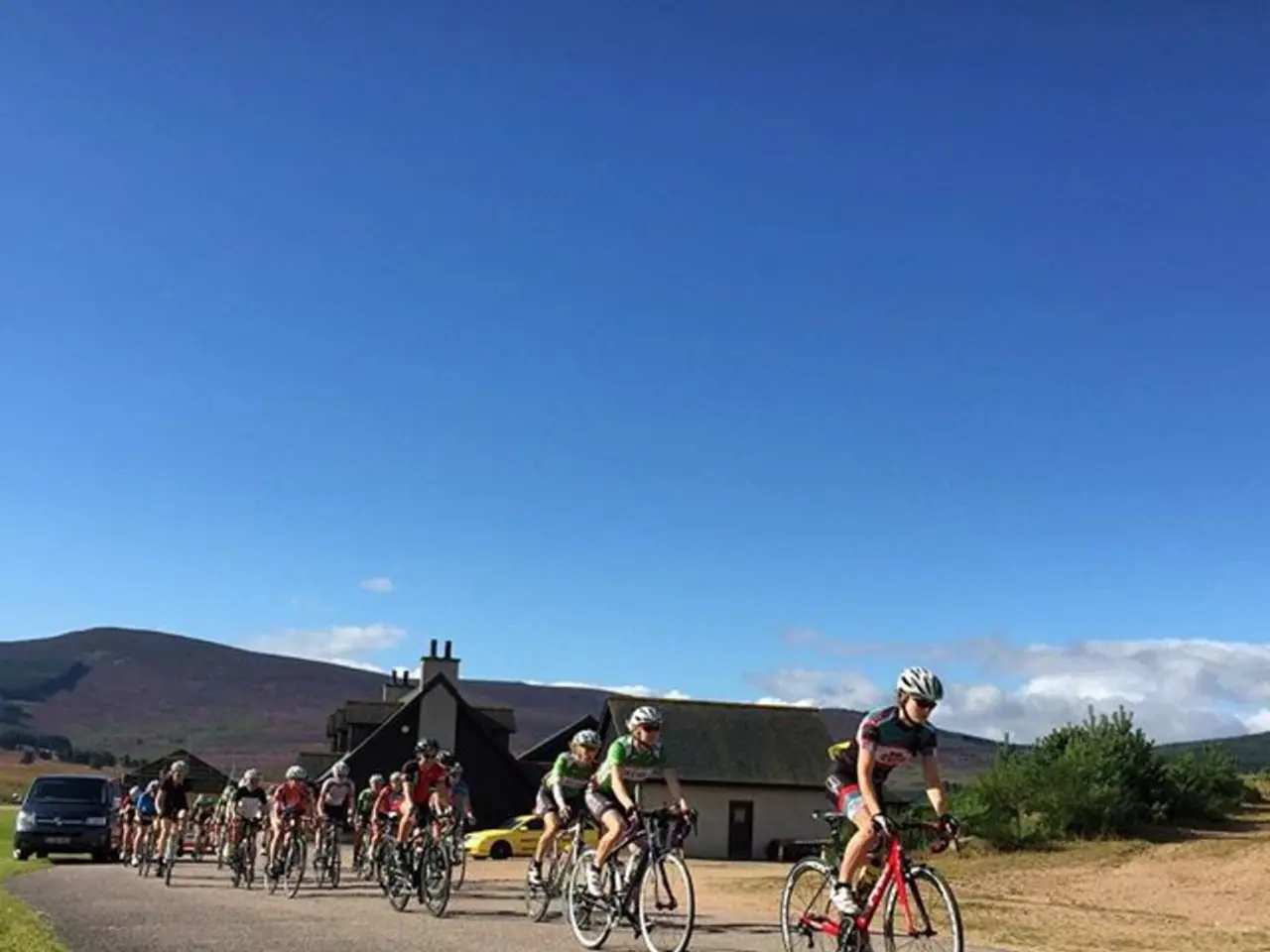Cycling emerges as an eco-friendly and laid-back means of travel in Spain: "Individuals repeatedly opt for this approach"
In the heart of Europe, Spain is making a name for itself on the world map of cycling tourism. The Spanish Cycle Tourism Federation (FEC) has been instrumental in this growth, spearheading efforts to promote cycling as a unique and enjoyable way to explore the country.
Since the onset of the COVID-19 pandemic, cyclist traffic on the EuroVelo 1 route in Spain has seen a significant increase. This trend is particularly noticeable during peak seasons for foreign visitors, which fall in the spring and autumn, while the national audience remains relatively stable throughout the year.
The rise of cycling tourism in Spain is not a competitive endeavour. Instead, it is a collaborative effort, with public administrations, entities from different sectors, and specialised tourism agencies all working together to promote this eco-friendly mode of travel.
One such agency is S-Cape Travel Spain, which specialises in self-guided cycling and hiking tours. An eight-day trip with S-Cape typically costs around 1,000 euros per person, offering a unique and immersive experience for cyclists.
Another agency, Bikefriendly Tours, has expanded its services to cater to the growing demand for less technical routes. Their audience is divided, with 70% being Spanish and the remaining 30% hailing from abroad, with the international profile growing steadily each year. Their average spending is around 60 euros per person.
Rutas Pangea, a company specialising in guided tours for an audience aged 45 and over, has an average expenditure of 150 euros per day. Unlike some cyclists, those who choose Rutas Pangea often organise their trips themselves, finding accommodations and routes to suit their preferences.
The bicycle has become increasingly popular, with less technical routes being demanded more frequently. This shift is reflected in the changing landscape of Spanish cycling tourism, as Spain has more than 300 cycling stages with over 11,500 kilometers spread across several autonomous communities.
However, Spain's cycling tourism industry is still in its infancy, and there are few statistics available to quantify its impact. One challenge that remains is improving security for cycling tourists, a concern shared by Spain and Portugal.
Despite these challenges, the coronavirus has proven to be a turning point for companies specialising in cycling tourism. Perico, a passionate cyclist who cycles at least twice a year with his family, during Easter and summer, is a testament to this. His love for cycling tourism allows him to immerse himself better in the places he passes through, creating unforgettable memories along the way.
To further solidify Spain's position on the world map of cycling tourism, the first cycling tourism fair in Spain is planned for September 12, 13, and 14 in Zaragoza. This event will bring together industry professionals, enthusiasts, and public administrations to celebrate and further the growth of cycling tourism in Spain.
As Spain continues to invest in its cycling infrastructure and promote this unique and sustainable mode of travel, it is poised to become a leading destination for cycling tourism in Europe and beyond.
Read also:
- Digital Chain's Rapid Transformation Ahead!
- Government grants of nearly a million euros for sports facilities in Bremen: funding for sports halls, entrance barriers, and locker rooms for local clubs
- Dangerous Pollutant Removal: Naval Weapons Industrial Reserve Plant and Northrop Grumman Corporation Site (NWIRP) in Bethpage, New York – Clean-up Initiated
- Cultivating Joy: The Core of Successful Human Resources Strategies








